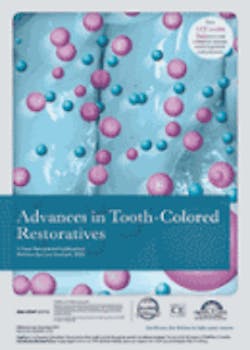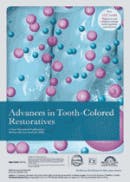Dr. Harvey Weingarten: Putting "life" back into the practice of dentistry
Jeffrey B. Dalin, DDS, FACD, FAGD, FICD
For more on this topic, go to www.dentaleconomics.com and search using the following key words: dental diversions, Dr. Harvey Weingarten, volunteer, charitable causes, Dr. Jeff Dalin.
Dr. Dalin: I think this interview will be of great use to many of our Dental Economics® readers. Many people feel like they are stuck in a rut with their day-to-day lives. But according to Dr. Harvey Weingarten, there are many ways to become re-energized. I have known Harvey since our days at the Indiana University School of Dentistry. Harvey, will you give our readers some ideas of how to return excitement to their practice lives? To begin, how can new materials and techniques help?
Dr. Harvey Weingarten
We need to do this with sound scientific data, reputable sales representatives, and dependable companies that will stand behind their products. We are in this for the long haul. Materials or procedures that make big promises and don't deliver or backfire in our faces should be remembered as we move forward.
Information is power. We need to do our homework and then proceed. Not each and every material or technique is going to work out as we had hoped. But if we never try, we will never know the outcome.
Consider impression materials for a moment. If we used those original materials from dental school, we would never want to continue to do indirect restorative work. Newer materials and procedures should do the following: Make the procedure easier on patients and ourselves, make the procedure more efficient, and most importantly, deliver a better product.
Dr. Dalin: I know you are a proponent of updating equipment and technologies. I remember hearing you rave recently about something simple that we take for granted: the Midwest ATC Stylus high-speed handpiece, and how improvements in this area can make our lives better.
Dr. Weingarten: I've practiced more than 31 years, and have seen many generations and changes in handpieces. When I first started practicing, handpieces were as big as a large cigar. Subtle improvements such as a latch-and-push button release in the chuck have helped. Larger changes in design have been fiber optics, quick release, and swivel capability.
Miniaturization and ergonomic changes have also had a tremendous impact on contemporary handpieces. Add into the equation increased torque without the stalling problems of old, and you have assembled the requirements of today's state-of-the-art handpiece.
I have found this total package in the Midwest Stylus ATC handpiece. This handpiece has taken me to the next level of making my life in dentistry easier. The ergonomic balance, pure brightness of the internal light, water spray, and most importantly, torque without stalling has made this my "go-to" handpiece. Much less eye and wrist fatigue, efficiency of my time, and smoothness of cut have made this my latest discovery.
Dr. Dalin: You have a thriving practice in South Bend, Ind., but have also kept busy doing a variety of activities such as teaching, serving as a NERB examiner, being a member of the Indiana State Board of Dentistry, insurance consulting, prison dentistry, convent dentistry, and lecturing on ethics. You have found a multitude of outlets, all within dentistry. Would you talk about these areas so our readers can see that we have many "dental diversions" at our fingertips?
Dr. Weingarten: Initially, my "dental diversions" were out of survival. When I started my practice with my schoolmate and business partner, Dr. William Gitlin, interest rates were approaching 20%, and we were in the economic slumps of the early '80s. I began teaching at a local dental hygiene school, and working part-time at a regional prison to pay the rent.
Suddenly, I realized how much these activities added to the diversity of my dental life. Spending time with students keeps me sharp. Working at the regional prison allowed me to hone some skills without the pressure of a time schedule in my day. This has led to many additional dental diversions.
One of the most interesting, yet one that I do infrequently, is participating with the Special Crimes Forensic Unit of my local police force. Through the years, we have worked together to identify deteriorated corpses. I used to kid my patients that on Fridays they could find me in one of two places. It was Convict or Convent Day. On the days that I did not go to the prison, I would spend one afternoon a month with retired nuns, working to keep them dentally functional and comfortable at their retirement facility.
Another diversion came via another patient. Many years ago, I was asked to help a local dental TPA (third-party administrator). This introduced me to a new world of dental insurance consulting. This experience helped me better understand dental insurance, and eventually allowed me to make appropriate business decisions regarding our practice about dental insurance.
When I was appointed to the Indiana State Board of Dentistry in the late '90s, it opened up a part of our profession that was interesting, challenging, and frustrating. We have a great profession, but it is frustrating to see those dentists who do not realize the trust that patients have placed in them.
This relationship with the Indiana State Board also enabled me to become a NERB (North East Regional Board) examiner, affording the opportunity to travel and interact with dentists around the Northeast.
As a lecturer in dental ethics, I have spent time with thousands of colleagues in my home state. Indiana has a continuing education requirement for this subject, and it allows me to learn much from the attendees since we talk about the dilemmas that colleagues confront.
When I reflect on these dental diversions, the most gratifying part is the other dentists with whom I have had the opportunity to network. I consider these dentists some of my best friends who I respect for what they have accomplished in their professional lives.
I have come full circle professionally since I am now a part-time associate clinical instructor in the dental school in which I trained, Indiana University School of Dentistry. This brings back many memories, and yet at the same time, it is gratifying to help shape the next generation of dentists. I never know what "dental diversion" awaits me. But I cannot wait; the options are endless.
Dr. Dalin: Give Kids A Smile is something near and dear to me. I have found that working for a cause is something that can also serve as a great outlet. I would encourage everyone to get involved with this program and other charitable causes. I think this is a great way to combine dental skills with the desire to help others.
Dr. Weingarten: Great point, Jeff! It has to be gratifying to you to know that an idea that you developed in dental school has helped so many people across this country. Unfortunately, I must admit that I have never participated in Give Kids A Smile. Our dental board meetings, and now my teaching assignments, have always been on Friday, the day of the week for the Give Kids A Smile national day.
As an alternative, my office colleagues and I volunteer at a local public health clinic one day a month. Once you commit yourself, you will become a better person for it. To me, you receive much more in return than you contribute.
Dr. Dalin: You have the option of becoming more involved with organized dentistry on local, state, or national levels. I know many others who enjoy working with local and national study clubs or Internet groups. These are areas in which you can dedicate efforts. These rewards can also be reenergizing.
Dr. Weingarten: Let's face it. Dentistry is hard work! Seventy-five percent of dentists are solo practitioners. I am very fortunate. I practice in a group in which I am surrounded by three dentists daily. We can kick ideas around at will. Not everyone is so lucky.
You need to look elsewhere for input. By expanding your horizons in organized dentistry (local, state, or national), study clubs, dental education, and continuing education programs, you have the opportunity to reenergize, refresh, and network your professional life. I cannot imagine practicing and enjoying what I do without my dental diversions. These diversions keep my professional life interesting and exciting.
Dr. Dalin: I think there are many dentists who are looking for ways to reenergize their lives, and you have been a great model and resource for ideas, Harvey. Is there anything else you want to tell our readers?
Dr. Weingarten: Take a chance! Step outside your comfort zone. You will become a better and happier dentist and person for it. Thanks for asking me to share, and I look forward to talking with you as our dental journeys cross paths again.
Harvey Weingarten, DDS, FACD, FICD, practices full-time in South Bend, Ind. He is an associate clinical professor with the Indiana University School of Dentistry, and a NERB examiner. You may reach Dr. Weingarten via e-mail at [email protected].
Jeffrey B. Dalin, DDS, FACD, FAGD, FICD, practices general dentistry in St. Louis. He is a cofounder of the Give Kids A Smile program. Contact Dr. Dalin at [email protected].
Past DE Issues

